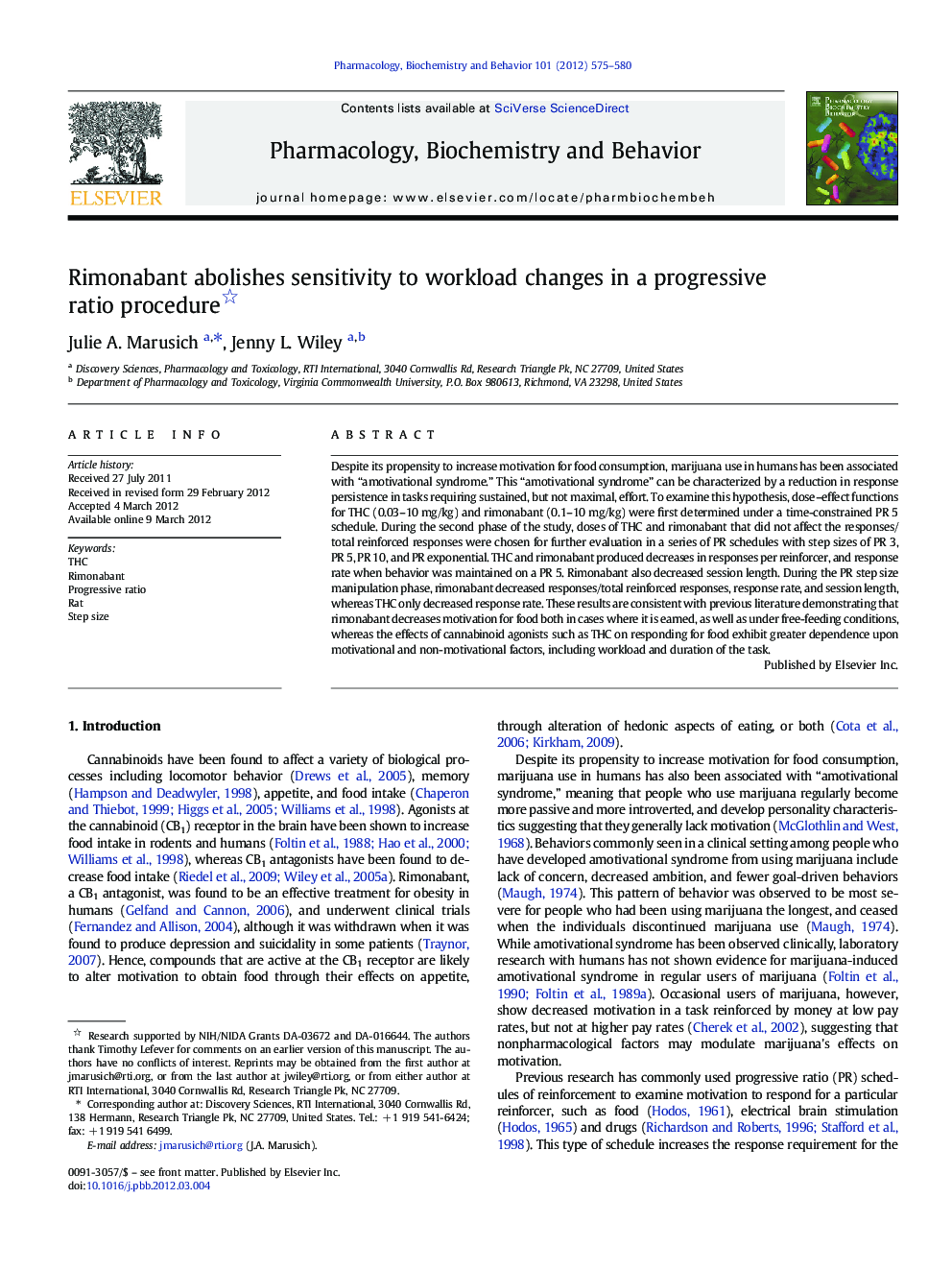| Article ID | Journal | Published Year | Pages | File Type |
|---|---|---|---|---|
| 2013230 | Pharmacology Biochemistry and Behavior | 2012 | 6 Pages |
Despite its propensity to increase motivation for food consumption, marijuana use in humans has been associated with “amotivational syndrome.” This “amotivational syndrome” can be characterized by a reduction in response persistence in tasks requiring sustained, but not maximal, effort. To examine this hypothesis, dose–effect functions for THC (0.03–10 mg/kg) and rimonabant (0.1–10 mg/kg) were first determined under a time-constrained PR 5 schedule. During the second phase of the study, doses of THC and rimonabant that did not affect the responses/total reinforced responses were chosen for further evaluation in a series of PR schedules with step sizes of PR 3, PR 5, PR 10, and PR exponential. THC and rimonabant produced decreases in responses per reinforcer, and response rate when behavior was maintained on a PR 5. Rimonabant also decreased session length. During the PR step size manipulation phase, rimonabant decreased responses/total reinforced responses, response rate, and session length, whereas THC only decreased response rate. These results are consistent with previous literature demonstrating that rimonabant decreases motivation for food both in cases where it is earned, as well as under free-feeding conditions, whereas the effects of cannabinoid agonists such as THC on responding for food exhibit greater dependence upon motivational and non-motivational factors, including workload and duration of the task.
► The purpose was to examine effects of THC and rimonabant on progressive ratio schedules. ► HC and rimonabant decreased responses/total reinforced responses and response rate. ► PR maintained behavior is sensitive to effects of cannabinoids. ► Rimonabant decreases motivation for food when it is earned, or under free-feeding conditions. ► THC exhibits greater dependence upon workload and duration of the task.
